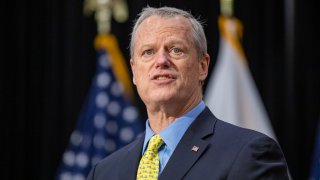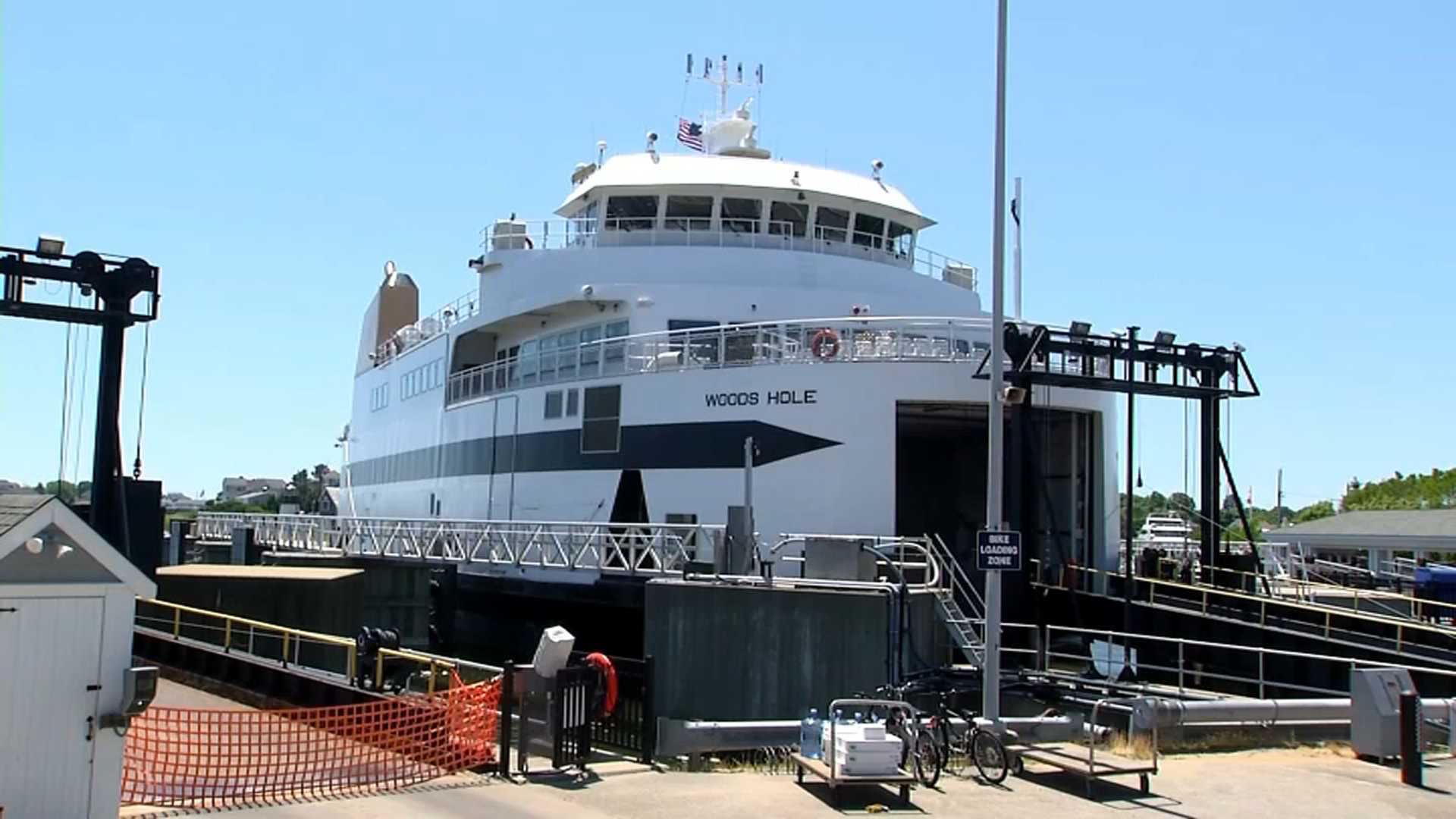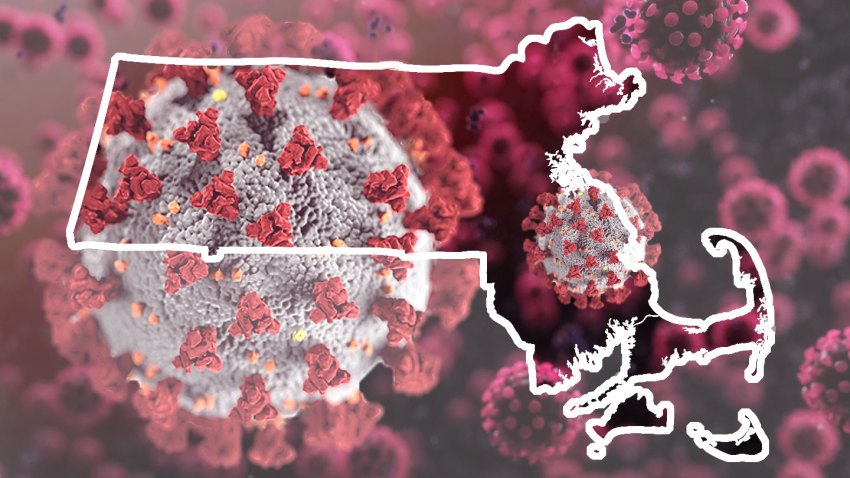
Democratic leaders in the Legislature doubled down Wednesday on their plan to stash $5.3 billion in federal aid into an account they could control over the next several years as they and Gov. Charlie Baker engaged in the first skirmish in what could soon be a major clash between the state's chief executive and its Legislature.
At the heart of the matter is a tug-of-war over who will take the lead in deciding how Massachusetts will spend the majority of its $5.3 billion in American Rescue Plan Act aid -- the Republican governor's executive branch, or the Democrat-controlled Legislature. Whichever branch of government controls the ARPA purse strings will probably also control the pace at which the federal money is put to use.
WATCH ANYTIME FOR FREE
>Stream NBC10 Boston news for free, 24/7, wherever you are. |
Baker appears to favor a more rapid infusion while legislative leaders are leaning towards spreading the money out over several years through a process similar to how state budgets are developed.
Soon after the Legislature took the first steps Tuesday to transfer all of the ARPA money into a new account, Baker's office warned that their action could jeopardize a pledge he made to distribute a cumulative $100 million to four cities that are getting disproportionately less aid than other similar cities due to a federal funding formula.
Get updates on what's happening in Boston to your inbox. Sign up for our >News Headlines newsletter.
Plus, the governor's office added, the federal aid "does not require legislative appropriation" and should be "put to work without delay."
But if that's the case, lawmakers said Wednesday, Baker should have already sent the money to Chelsea, Everett, Methuen and Randolph.
"If he says that he has that authority, then he could have cut a check a week ago," Rep. Dan Hunt, chairman of the House Committee on Federal Stimulus and Census Oversight, said.
The Legislature's plan to transfer the money into a different account also caught the attention of U.S. Sens. Elizabeth Warren and Ed Markey, and U.S. Rep. Ayanna Pressley, who put out a joint statement Wednesday morning calling on the state to "immediately distribute to Chelsea, Everett, Methuen, and Randolph the $100 million dollars committed to them."
Asked during a visit to Chelsea on Wednesday morning why those cities not yet gotten their $100 million, the governor said it was because of the Legislature's actions Tuesday.
"We would have just moved ahead and put the money out," Baker said. "We're gonna have a conversation, obviously, with the Legislature and say to them, you know, 'Do you want to treat these four communities differently, or should we be doing exactly for them what is actually going on for the other 347?'"
When pressed about why the money had not already been sent to the cities before Tuesday's legislative announcement and action, the governor replied, "The Legislature put out a press release, they made a point with respect to this. It wasn't $5.2 [billion], it was $5.3 [billion], OK? We'll raise this issue with them. I hope they see it the way we do."
In the eyes of House Speaker Ronald Mariano and Senate President Karen Spilka, however, it was the governor who suddenly saw the situation the way they did.
"We agree that communities that have been disproportionately impacted by COVID-19 and left behind by a flawed funding formula, like Chelsea, Randolph, Everett, and Methuen, should -- and will -- receive additional financial support," they said in a joint statement released Wednesday afternoon. They added, "Like our delegation, we have a sense of urgency regarding providing coronavirus relief to our hardest hit communities. We are glad the Governor, who has been in receipt of these funds for two weeks, is now joining the Legislature in this sense of urgency."
The legislative leaders, while needling the governor for being slow to distribute some of the money, did not say when they would like to begin or conclude their own process for deciding how to spend the money
If the Senate does not pass the transfer bill until next Thursday, which is the day it typically holds formal sessions, and the governor takes his full 10 days to review the bill, it would be about two weeks between the announcement of the plan to transfer the money and the transfer itself. Then the legislative leaders envision starting a "robust legislative process" to determine how the money would eventually be spent.
When Baker announced his commitment in March to make up for the shortfalls created by a federal formula, he did not specifically say the money would come from the ARPA award and left open the possibility that leftover CARES Act money could be used. His administration's press release said he would "work with the Legislature to use existing or future sources of federal revenue to fund this commitment."
As for the remainder of the state's ARPA money and the larger question of who should control it, the Congressional lawmakers said somewhat vaguely Wednesday that "state leaders" should "determine allocation of the rest of the $5.3 billion in funding."
Massachusetts received its $5,286,067,526.40 federal American Rescue Plan Act money on May 19 and it has been sitting in the Federal Grants Fund overseen by the Executive Office for Administration and Finance since. That fund is not subject to appropriation, meaning that the executive branch decides when and how to spend the money within it.
Spilka and Mariano jointly announced their plan Tuesday to pass legislation requiring Comptroller William McNamara to move the entirety of the state's ARPA award from the Federal Grants Fund to a separate account that would be subject to legislative appropriation. The House passed the bill (H 3827) Tuesday and the Senate is planning to do the same next week.
After ceding some of its power through the early months of the COVID-19 pandemic as the governor flexed his executive authority around public health, the Legislature has in recent months shown a renewed interest in playing an oversight role when it comes to the vaccine rollout and the distribution of federal funds.
The Legislature's desire to have greater say over how the ARPA money is spent comes after House lawmakers told Baker's budget chief about their frustrations that they hadn't been given enough information about how much federal aid has already been spent and how the administration decided how it would spend that funding. Rep. John Barrett said at an April hearing that lawmakers "almost feel like we're being left out of the process."
"We're concerned about having a public process and we want to make sure that everyone participates in that conversation and that everyone participates in the recovery," Hunt said. "The House and Senate are responsible to their constituents and are closer to the population than the governor or his appointed commissioners."
Spilka and Mariano said in their joint statement Wednesday that they are "united in our belief that appropriating the American Rescue Plan funding is best done through an inclusive and open public legislative process."
Baker has not suggested he wants to shut the Legislature out of the process entirely and his office said Tuesday that the governor is ready to work with the Legislature, local governments, non-profits, and the private sector to "invest these funds quickly." But while the legislative budget process gives a voice to the executive branch, there is no executive branch spending process that guarantees a voice for lawmakers.
Massachusetts is far from the only state where a disagreement over ARPA money spending authority has broken out.
Lawmakers in Indiana and North Dakota passed bills giving themselves authority over federal aid spending decisions, their governors vetoed the bills and the legislatures then overrode the vetos to keep the ball in their own courts. The National Conference of State Legislatures said disagreements over who gets to hold onto the ARPA purse strings have also unfolded in New Mexico and Wisconsin.
In Connecticut, Gov. Ned Lamont signed a bill that requires his executive branch to submit proposals for federal funds allocation to House and Senate leaders, NCSL said, and West Virginia lawmakers gave their governor the power to spend up to $150 million of the funds.
"In the end, authority is largely determined by the way states interpret their individual laws," NCSL policy associate Emily Maher wrote earlier this month.




